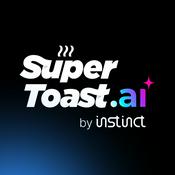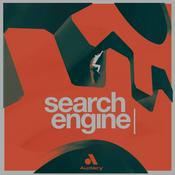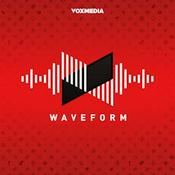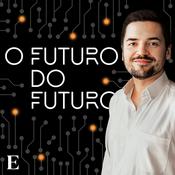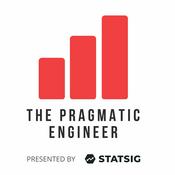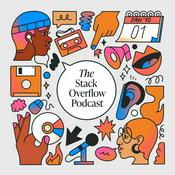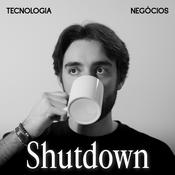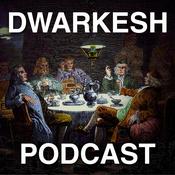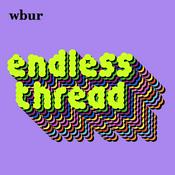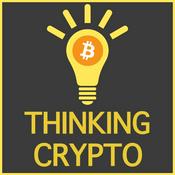80 episódios
- We've renamed the podcast and community — we are now the Feeling of Computing! Here are some thoughts about the motivation to rename and the choice of new name. It's a small change, but it feels meaningful and clarifying. The new name better fits what we've been doing all along, and sets us up for the next decade of this community.
The new name reminded us of The Computer is a Feeling, a document (of some definition) by Tim Hwang and Omar Rizwan. Unlike our usual selections, which are crouton-dry and tiring, this one is basically a 1-pager, quick and fun — you should totally give it a glance and see what you make of it, before Jimmy and I tease it apart and lawyer over the many nuances.
This piece makes us question what the computer means in our lives, and how that may have changed over time. Light on specifics and arguably steeped in nostalgic yearning, its series of declarative statements come out more like broadly probing questions. Is the computer feeling possessed only by those who remember the time before the internet? Are computers even required? What does feeling this feeling elicit one to do?
We answer at least one of these questions. "But you can't trust them, they're podcasters," said everyone ever, "you've got to feel it for yourself."
Links
$ While these main Feeling of Computing episodes are, in a word, infrequent, the bonus episodes over on our Patreon — Feeling Off — arrive at a dependable regularity! Why, in the time since we recorded this here episode, we've released two (2) bonus episodes. The first was a unruly deep tangent Jimmy and I fell upon right smack in the middle of this very episode, and then excised out — That's Shakespeare — about code.org, whether the "everyone should learn to code" movement is actually about literacy, the backlash to this movement, and our personal feelings on it all. Then in December we shared our annual end-of-the-year spectacular with games, awards, music, spelling, men who are spiders, and our predictions about the near and distant future — All of the False Ones — free free free for download, no patronage required.
The old name is cursed.
The old name might have been inspired by Bret Victor's talk The Future of Programming, but the vibe of the community is probably closer to Inventing on Principle.
The new name invites us to reflect on the way our tools make us feel. For instance, Kid Pix was a quirky, playful drawing program designed for younger users which had its heyday in the 1990s when Ivan was a younger user, and it gave him some pretty specific feelings at the time. (Also, in the time since recording this episode, Ivan dug up a Snow Leopard iMac from the sedimentary rock and installed KidPix Studio 4, and his 6 year-old daughter has been having a blast with it.)
One Piece is a manga and anime that's pretty popular, but perhaps off-topic for our community.
Did you know about our virtual meetups? Every month we have people showing off their work, and it's been fantastic to see the wild variety of creative programming projects built by members of our community. We share the details of upcoming meetups in the #announcements channel on our Slack, and publish them in this Luma calendar. You should come!
The feeling is still present, in your time, as it was in ours
You can build computers out of water, if you want
Sim City 3000 was released in 1999, and gave Jimmy the computer feeling. (Ivan played Sim City 2000 back in 1997-ish, and got pretty good at typing the word "FUND", before learning that this didn't actually give you free money and instead gave you a bond.)
When Ivan says "go to six or seven bookmarks", that's a reference to this appfrom 2024, not the mid 2025 meme.
The two folks in our sphere — Folk Computer by Omar (et al), and FolkJS by Chris Shank and Orion Reed. Folk Computer is similar to Dynamicland, which Omar did some interesting work on.
Back in 1997, Ivan taught himself to edit videos using Avid Cinema, a Mac-only video editing tool that predates iMovie but served similar goals. (It came bundled with the infamous Power Macintosh G3 All-In-One, aka the "Molar Mac", which was Ivan's second home computer.)
The Programmable Ink gang at Ink & Switch have spent the past few years on this one project, and it sometimes gives Ivan the computer feeling.
The Bazaar and the… The Whatever… Yeah, Yeah.
MetaCreations was the company behind Bryce 3D and Poser 3, which Ivan used quite extensively when he was a young'un. Here's a photo of Ivan, midlife crisis rapidly approaching, holding his original Bryce 3D box.
Wormholes used in this episode:
One wormhole to/from the Feeling Off bonus episode That's Shakespeare
No secret wormholes.
! Send us gushing, uncomfortably familiar fan mail, join the Feeling Of community, and find us on-line:
A:
B:
C:
D:
e:
F:
G:
H:
I: 🐘 🦋 🌐
J: 🐘 🦋 🌐
K:
L: 🐘 🦋 🌐
M:
N:
O:
P:
Q:
R:
S:
T:
U:
V:
W:
X:
Y:
Z:
https://feelingof.com/episodes/079
Support us on Patreon: https://www.patreon.com/feelingofcomputing
See omnystudio.com/listener for privacy information. - One of the biggest goals of this show — our raisin detour, if you will — is to encourage people to look at computer programming differently. It's not just a job, or a way to make the computer do what you want. Code isn't just the material you sculpt into apps and games and websites. The very act of programming itself, and the languages we make and use to do that programming, reflect who we are as people. Programming languages say something.
Esolangs — esoteric programming languages — are programming languages created for these more self-reflective purposes. To some, they're defined by what they're not: not for serious use, not for education, not for efficiency. To others, they're a bunch of funny jokes that people can commiserate through after suffering the steep learning curve of becoming a programmer. A few find in them an opportunity to explore strange computational models, or baffling syntax designs. But is there more to them? Could there be?
In this episode, we're discussing a preprint of the paper Let's Take Esoteric Programming Languages Seriously by Jeremy Singer and Steve Draper, and struggling with what it even means to give esoteric languages their due.
Links
$ Each of these episodes is a labour of love. If you appreciate that labour, slip us a five on Patreon. As is the norm, you'll get a second RSS feed with a bonus episode each and ev-er-y month. Except this month, there's actually two (2) bonus episodes, for the simple reason that this podcast swells with bubbles of hot waxy fluid that spill the container of my Ableton Live when they pop. The first pop is a half hour cut from this esolangs ep, the three of us brainstorming esolangs we'd enjoy, super casual and playful, perfect for building your parasocial podcast relationship, you'll love it. The second bonus, as I'm sure you've been expecting, is three hours of Jimmy and I relaying our experiences with Silksong, unpacking its few contentious design decisions, fawning over exquisite details, the good shit. So yeah, hand us one hundred nickles, help Ivan repair his basement, enjoy more of… whatever this is.
Daniel Temkin 🛌 😴💤😘
esoteric.codes
Daniel's new book, Forty-Four Esolangs
Joana Chicau
The Less Humble Programmer
Esolangs Wiki
Entropy, an esolang by (total dreamboat) Daniel Temkin
Unnecessary, the 4:33 of esolangs, by Keymaker
Turing Paint by Byron Knoll, which is similar to Brian Silverman's Wireworldand Lu's Cableworld
Ivan's Visual Programming Codex, a collection of all the cool visual programming things Ivan has come across in his travels.
Riskopoly — The Game of Capitalist Imperialism!
Fanny#In_slang
Brainfuck and Whitespace are two canonical esolangs.
Our episode on Structure of a Programming Language Revolution, which includes extended discussion of Ivan's father-in-law's lookalike.
Dreamberd is one of Lu's Esoteric programming languages, which has a (let's just say) "interesting" relationship with AI.
The Story of Mel
Piet, Befunge, and Malbolge are more classic, oft-cited esolangs.
Fractran deserves special mention, since the language is comprised entirely of fractions, which is pretty neat.
MarkovJunior also deserves special mention. Seriously, go look at the examples. Wild stuff. It's by Maxim Gumin, who also did the famous WaveFunctionCollapse project.
We did an entire interview episode about Orca with creator Devine Lu Linvega, who more recently made Tote, a reversible rewriting sandbox.
Reversible computing, something Ivan is particularly interested in.
XKCD's comic X, about a programming language that uses fonts creatively.
ArnoldC is one of those esolangs, like Shakespeare, Chef (which, actually, is kinda good actually if you actually have to eat whatever you code), or LOLCODE
Wat; still hits.
Bodyfuck
Evil.css, "subtle and not-so-subtle CSS rules that will slowly drive people insane"
Hest doesn't exist.
Code golfing is the practice of making your code as succinct as possible, often at the expense of readability (though it leads certain people to write really good coffeescript). The International Obfuscated C Code Contest is related, in that it's about writing C code where unreadability is the goal.
Jimmy would like to challenge y'all to write Fizz Buzz with no booleans, no conditionals, no pattern matching, or other things that are like disguised booleans.
Arroost is a musical programming environment Lu made to NORMALIZE SHARING SCRAPPY FIDDLES. Inform is a natural programming language for interactive storytelling. PuzzleScript is a rewriting language for making tile-based puzzle games. Each of these sits at an interesting spot somewhere on the twisty boundary between the programming meaning of "expression" and the human meaning of "expression".
The School for Poetic Computation occasionally runs a class called Digital Love Languages.
Coming Out Simulator and other works by Nicky Case, and dys4ia by Anna Anthropy, are wonderful examples of the sort of deeply personal expression Lu and Ivan would like to see in programming tools.
What music does Ivan listen to? Well… here's most of it.
What music does Ivan make? Well… here's some of it. But Jimmy is fond of Diminished Fifth, an attempt to make some shrinking music with ClojureScript. It's no Merzbow.
Zachtronics games, like exapunks — are they esolangs? A good number of recent videogames have included conlangs (constructed languages), such as 2023's fabulous Chants of Sennaar — but beware of spoilers, as some of these games might use the obscurity of the conlang to hide secrets in plain sight. Minecraft, natch, has a conlang for enchantments, and it's worth mentioning that redstone is an esolang of a sort. And then there's the Turing tarpit games, like Baba is You… the list goes on.
Perhaps Tidal Cycles and Strudel are esolangs? Perhaps also the Game of Life?
Hedy is an unabashed push to do something different!
Jonathan Richman's He Gave Us The Wine To Taste It is probably my favourite of the various attempts artists have made to plead with their audiences: don't overthink this! (Friends of the show might be familiar with this one.)
Isomorf let you view your program with your choice of syntax. It's like Hedy, but less humanitarian.
Poe's Law is not Postel's law
Music used in this episode:
Two songs from Ivan's Organs.
One from AG,BO.
A slice of Diminished Fifth.
The shortest track of this, the shortest track of that.
The last song in the episode isn't on the internet, but the demo is.
Jonathan Richman's He Gave Us The Wine To Taste It
! Send us email, join the FoC community, and find us on-line:
Iv: 🐘 🦋 🌐
Jm: 🐘 🦋 🌐
Lu: 🐘 🦋 🌐
See you in dreamland~
https://feelingof.com/episodes/078/
Support us on Patreon: https://www.patreon.com/feelingofcomputing
See omnystudio.com/listener for privacy information. - A classic "80-year predictions" episode. How did we do, humanity?
Here's the article (free with ads): As We May Think
Links
$ Patreon
We're considering changing The Name of the FoC community, podcast, et cetera.
Transatlantic Accent, and all the ships at sea.
This episode's advertisements: Ex-Lax, Mifflin, et cetera.
The New Media Reader is a good read(er).
Blue Prince is surely everyone's 2025 GOTY. You'll find ample discussion of its twisty design in our bonus feed.
Oppenheimer was probably my least favourite David Nolen movie.
ENIAC was, for a time, the computer.
Engelbart
The Polaroid instant camera dates back to the 1940s!
Google Glass and Ray-Ban Meta, sigh
Wikipedia's List of Existing Technologies Predicted in Science Fiction
Apparently microfilm and microfiche are both instances of microform.
Boy Milk, no explanation needed.
Sean M. Carroll, physicist.
Claude Shannon, information theorist ;)
AI Is Not Your Friend appeared in The Atlantic on May 9th, 2025.
Amazon Mechanical Turk is "artificial artificial intelligence".
Awesome GitHub lists
Daring Fireball and Kottke.org are two long-running blogs that helped popularize the "linkblog" form.
The Wirecutter was our previous top pick for product recommendations, but their history of shilling junk and our growing concerns about e-waste have led us to downgrade them in our rankings.
Devine (the other Lu) maintains a pair of wikis, one for hundredrabbits and another for research and projects.
Alexander Obenauer also does a lovely job publishing research notes.
Unison and Dynamicland are two strong visions for the future of computing.
Music:
lemon (tussed/screwed because everyone listens at 2x)
! Send us email, join the FoC community, and find us on-line:
I: 🐘 🦋 🌐
J: 🐘 🦋 🌐
K: N/A
L: 🐘 🦋 🌐
See you in the future!
https://futureofcoding.org/episodes/077
Support us on Patreon: https://www.patreon.com/feelingofcomputing
See omnystudio.com/listener for privacy information. - You know Alan Turing, right?
And the Turing test?
Have you actually read the paper that introduced it,
Computing Machinery and Intelligence?
No?!
You… you are not prepared.
With very special guest: Felienne Hermans
Notes
$ Patreon
Mystery AI Hype Theatre 3000 podcast, from Emily M. Bender and Alex Hanna. "Always read the footnotes"
[The Language Game](https://en.wikipedia.org/wiki/Language_game_(philosophy) by Ludwig Wittgenstein
Can Machines Think? by W. "Billy" Mays
Lu's paper with Dave Ackley, Dialogues on Natural Code describes how the symbiote will spread to consume all of humanity.
Reclaiming AI as a Theoretical Tool for Cognitive Science by Iris van Rooij et al.
Ned Block's Blockhead
Nick Cave's thoughts on AI song lyrics. For instance: "Writing a good song is not mimicry, or replication, or pastiche, it is the opposite. […] It is the breathless confrontation with one’s vulnerability, one’s perilousness, one’s smallness, pitted against a sense of sudden shocking discovery; it is the redemptive artistic act that stirs the heart of the listener, where the listener recognizes in the inner workings of the song their own blood, their own struggle, their own suffering."
What Computers Can't Do by Hubert Dryfus
Wittgenstein on Rules by Saul Kripke
Is chess the drosophila of artificial intelligence? by Nathan Ensmenger
Computers as Theatre by Brenda Laurel
! Send us email, especially questions or topics you'd like us to discuss on future episodes, share your wildest ideas in the Slack, and:
IVAN: 🐘 🦋 🌐
JIMM: 🐘 🦋 🌐
TODE: 🐘 🦋 🌐
FELI: 🐘 🦋 🌐
See you in the future!
https://futureofcoding.org/episodes/076
Support us on Patreon: https://www.patreon.com/feelingofcomputing
See omnystudio.com/listener for privacy information.
Mais podcasts de Tecnologia
Podcasts em tendência em Tecnologia
Sobre Feeling of Computing
A romp through the field of computer programming, grapling with our history and wondering what should come next. A mix of deeply technical talk, philosophy, art, dark lore, and good takes. Hosted by Ivan Reese, Jimmy Miller, and Lu Wilson.
Sítio Web de podcastOuve Feeling of Computing, SuperToast e muitos outros podcasts de todo o mundo com a aplicação radio.pt
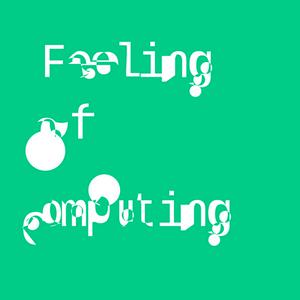
Obtenha a aplicação gratuita radio.pt
- Guardar rádios e podcasts favoritos
- Transmissão via Wi-Fi ou Bluetooth
- Carplay & Android Audo compatìvel
- E ainda mais funções
Obtenha a aplicação gratuita radio.pt
- Guardar rádios e podcasts favoritos
- Transmissão via Wi-Fi ou Bluetooth
- Carplay & Android Audo compatìvel
- E ainda mais funções


Feeling of Computing
Leia o código,
descarregue a aplicação,
ouça.
descarregue a aplicação,
ouça.


